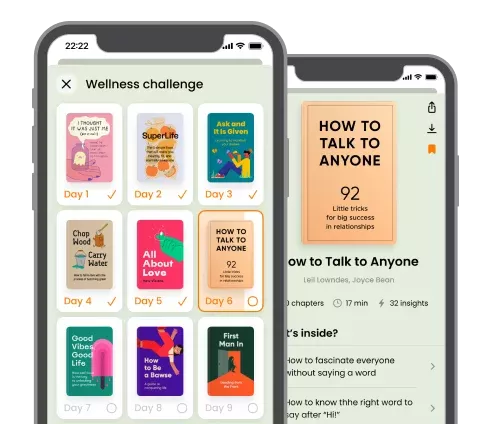9 Best Mathematics Books
Discover a wide selection of mathematics books covering various topics, from algebra to calculus, to enhance your knowledge and skills.
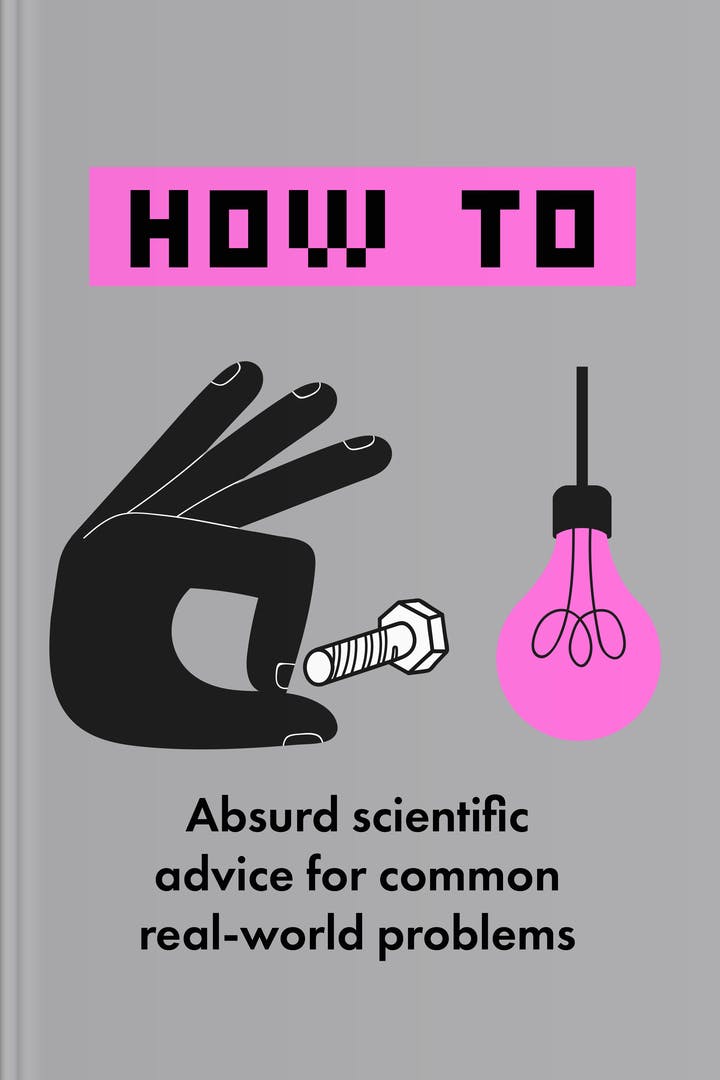 1
1How To
by Randall Munroe
What is How To about?
In this witty and informative book, the author, known for his popular webcomic, offers hilariously unconventional solutions to everyday problems using absurd scientific advice. From how to throw a pool party on the moon to how to build a lava moat around your house, Munroe's unique blend of humor and scientific knowledge will entertain and educate readers, proving that sometimes the most outlandish ideas can lead to surprisingly practical solutions.
Who should read How To
Science enthusiasts seeking unconventional solutions to everyday challenges.
Problem solvers looking for humorous and out-of-the-box scientific advice.
Fans of Randall Munroe's witty and informative writing style.
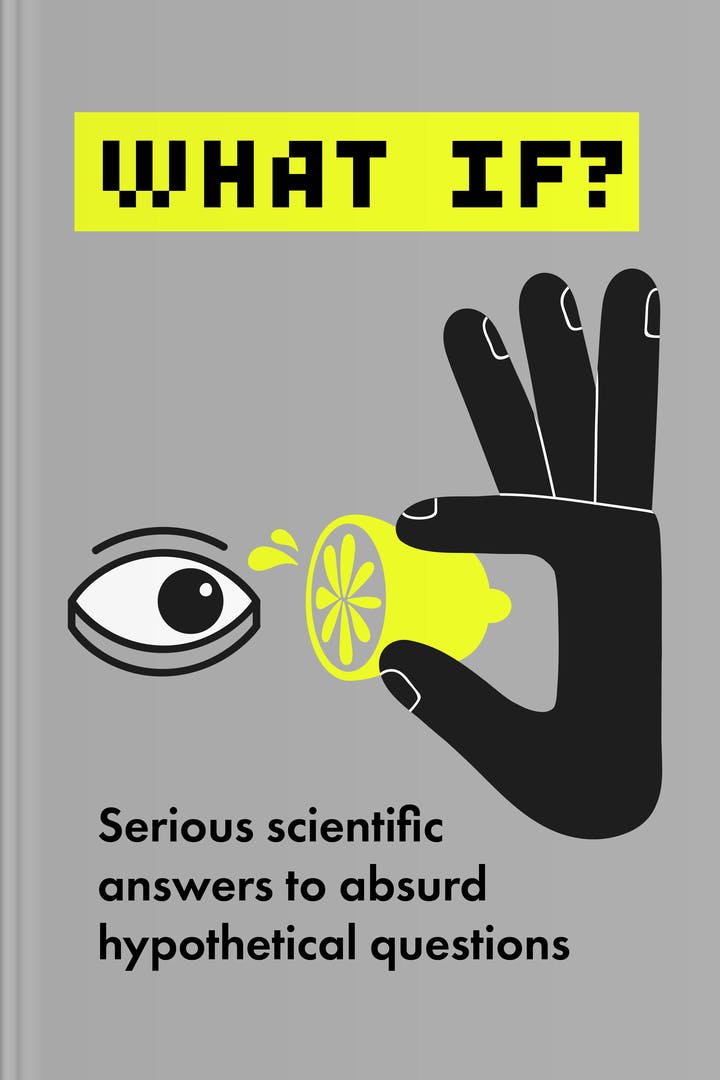 2
2What If? Serious Scientific Answers to Absurd Hypothetical Questions
by Randall Munroe
What is What If? Serious Scientific Answers to Absurd Hypothetical Questions about?
In this thought-provoking and entertaining book, the author, known for his webcomic, xkcd, tackles absurd hypothetical questions with serious scientific answers. From exploring the consequences of throwing a baseball at near-light speed to pondering the effects of a robot uprising, Munroe's witty and informative explanations delve into the realms of physics, biology, and engineering. With a blend of humor and scientific rigor, this book offers fascinating insights into the bizarre and imaginative world of hypothetical scenarios.
Who should read What If? Serious Scientific Answers to Absurd Hypothetical Questions
Science enthusiasts seeking entertaining and thought-provoking hypothetical scenarios.
Curious minds eager to explore the intersection of science and imagination.
Fans of Randall Munroe's witty and informative webcomic
xkcd.
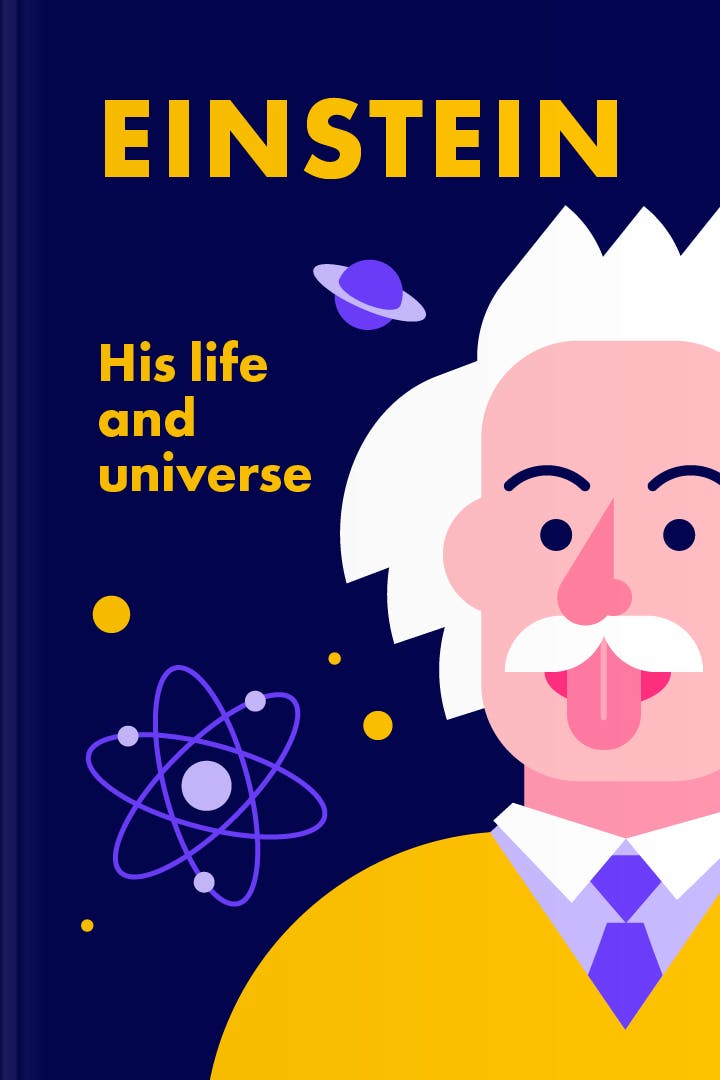 3
3Einstein
by Walter Isaacson
What is Einstein about?
This captivating biography delves into the life and mind of one of the greatest scientific minds in history. From Albert Einstein's humble beginnings to his groundbreaking theories, Walter Isaacson paints a vivid portrait of the man behind the genius. Exploring his personal struggles, scientific achievements, and lasting impact on the world, this book offers a comprehensive and engaging account of Einstein's life and his revolutionary contributions to physics.
Who should read Einstein
Science enthusiasts seeking a comprehensive biography of Albert Einstein.
History buffs interested in understanding the life of a renowned physicist.
Students and scholars studying the life and contributions of Einstein.
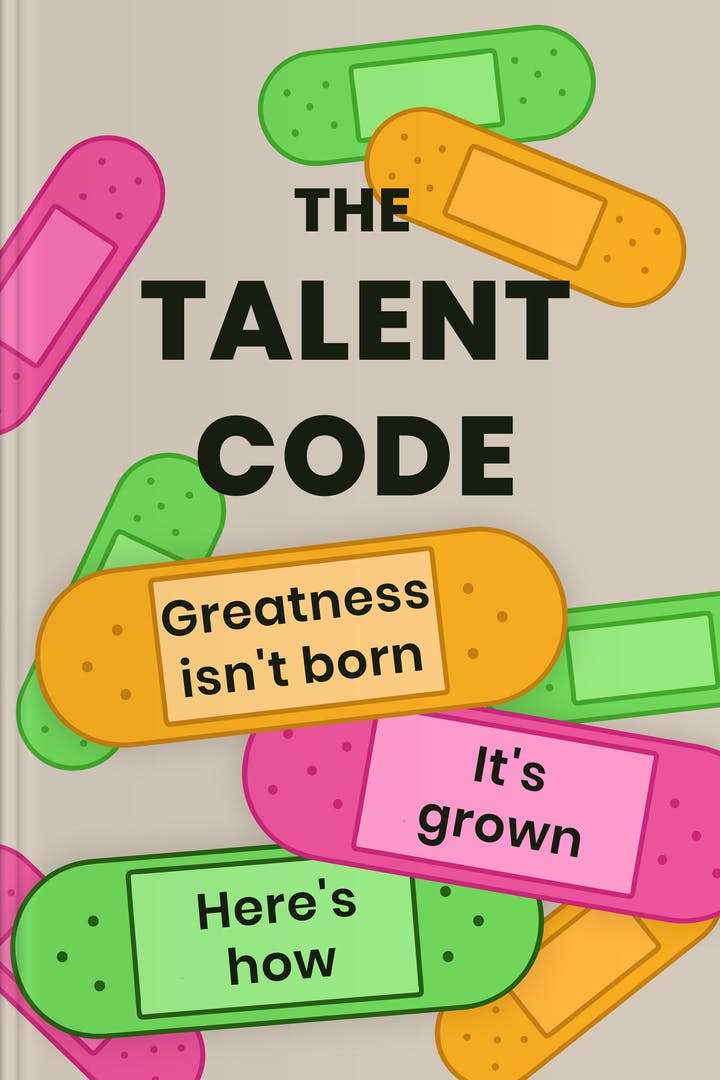 4
4The Talent Code
by Daniel Coyle
What is The Talent Code about?
"The Talent Code" explores the science behind skill development in various fields such as sports, art, music, and math. Daniel Coyle delves into the concept of deep practice, explaining how individuals can unlock their potential and achieve greatness. Through insightful anecdotes and research, Coyle reveals the secrets to mastering any skill and provides practical strategies for readers to enhance their own abilities.
Who should read The Talent Code
Athletes
musicians
and artists seeking to enhance their skills.
Educators and coaches interested in understanding the science of talent.
Individuals curious about the secrets behind exceptional performance.
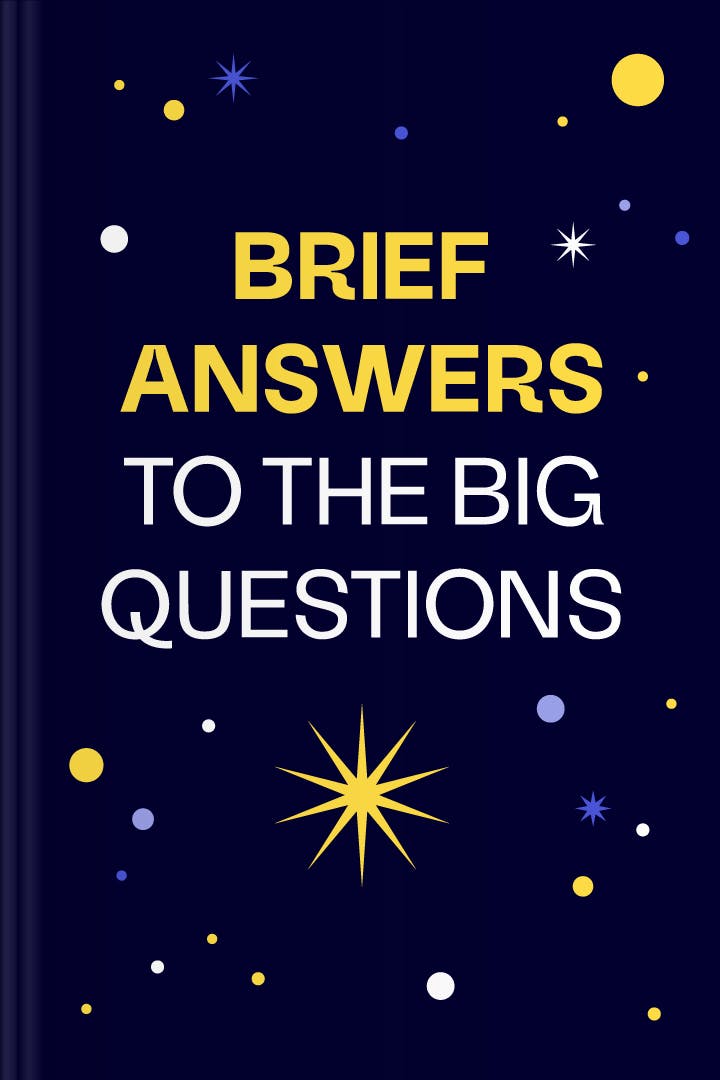 5
5Brief Answers to the Big Questions
by Stephen Hawking
What is Brief Answers to the Big Questions about?
In this thought-provoking book, a renowned scientist tackles some of humanity's most pressing questions. With his signature clarity, Stephen Hawking explores topics like the existence of God, the future of artificial intelligence, and the possibility of time travel. Drawing on his vast knowledge of physics and cosmology, he offers concise and insightful answers that challenge our understanding of the universe and our place in it. A captivating read that invites readers to ponder the mysteries of existence.
Who should read Brief Answers to the Big Questions
Science enthusiasts seeking accessible explanations to profound cosmic questions.
Individuals curious about the future of humanity and our universe.
Readers interested in Stephen Hawking's final thoughts on life's biggest mysteries.
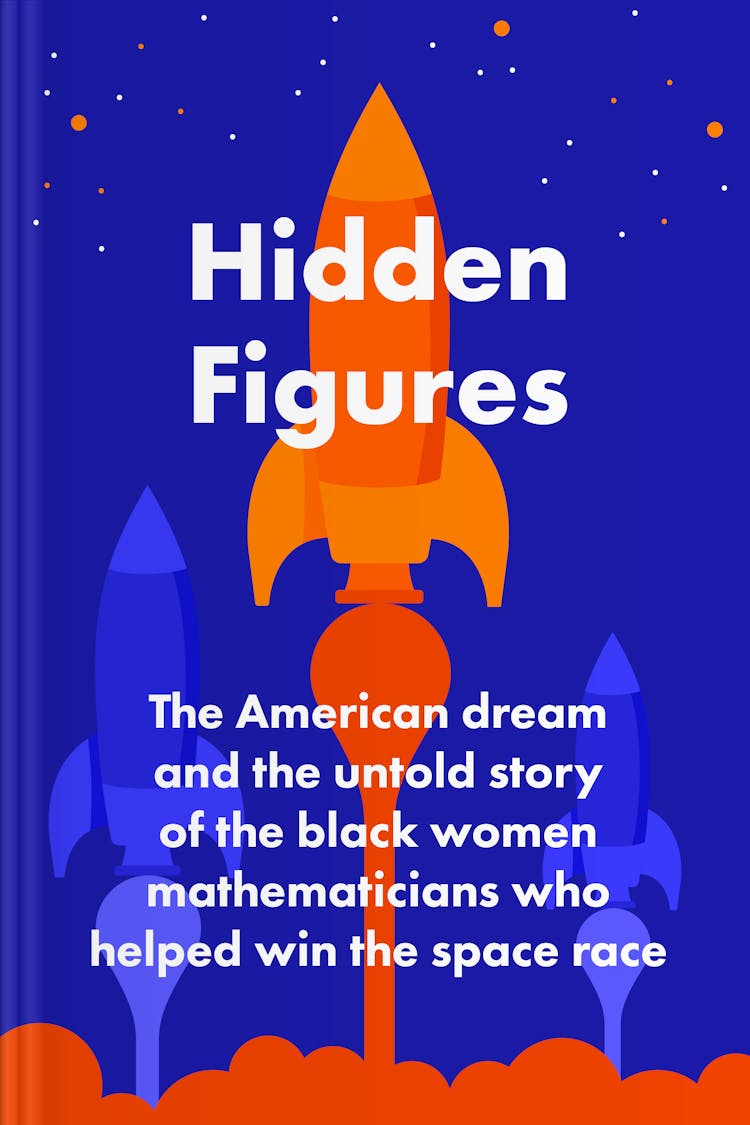 6
6Hidden Figures
by Margot Lee Shetterly
What is Hidden Figures about?
This captivating non-fiction book delves into the untold story of the brilliant African American women who played a pivotal role in the Space Race. Set against the backdrop of racial segregation and gender discrimination, the book highlights the remarkable contributions of these unsung heroes at NASA, whose mathematical expertise and determination shattered barriers, challenged societal norms, and ultimately helped America achieve its greatest scientific triumphs.
Who should read Hidden Figures
History enthusiasts interested in the untold contributions of African American women in the space race.
Students studying the intersection of race
gender
and science.
Anyone seeking inspiring stories of resilience and triumph over adversity.
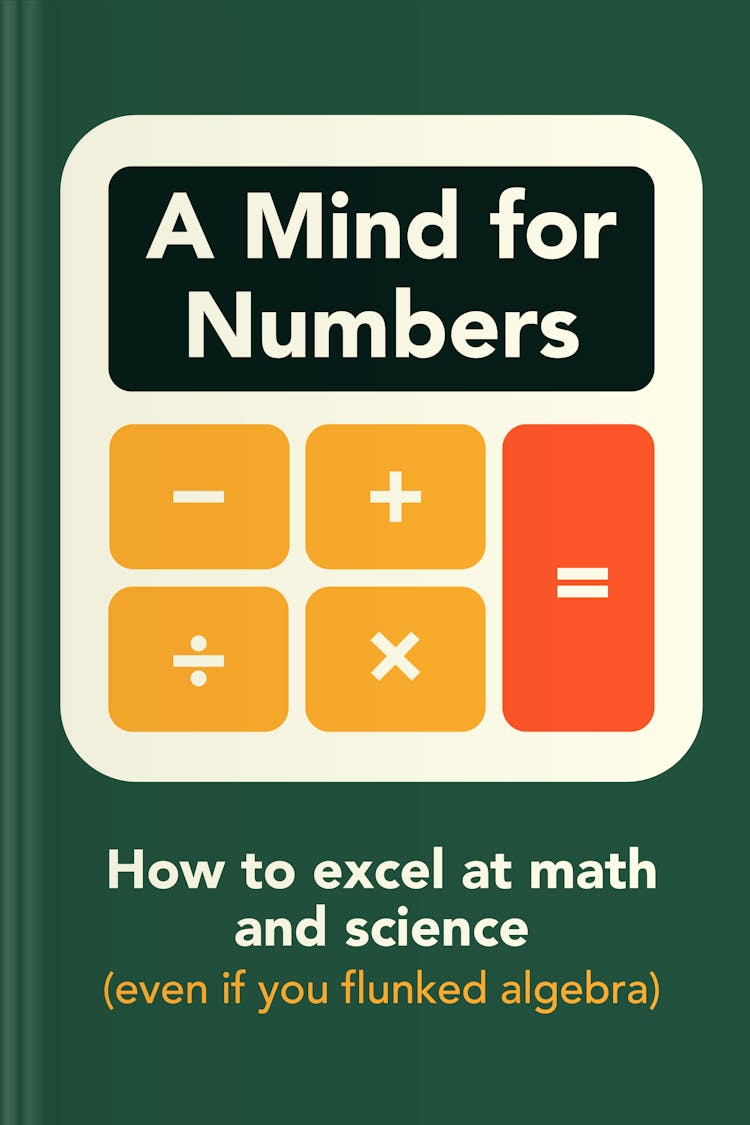 7
7A Mind for Numbers
by Barbara Oakley, Ph.D.
What is A Mind for Numbers about?
In this insightful guide, a renowned expert in learning strategies shares her secrets to mastering math and science. Barbara Oakley, Ph.D., reveals effective techniques to overcome common obstacles and develop a "mind for numbers." With practical tips, real-life examples, and engaging exercises, this book equips readers with the tools to excel in these subjects, regardless of their previous experiences or perceived abilities.
Who should read A Mind for Numbers
Students struggling with math and science concepts.
Professionals seeking to enhance their analytical thinking skills.
Educators looking for effective teaching strategies in math and science.
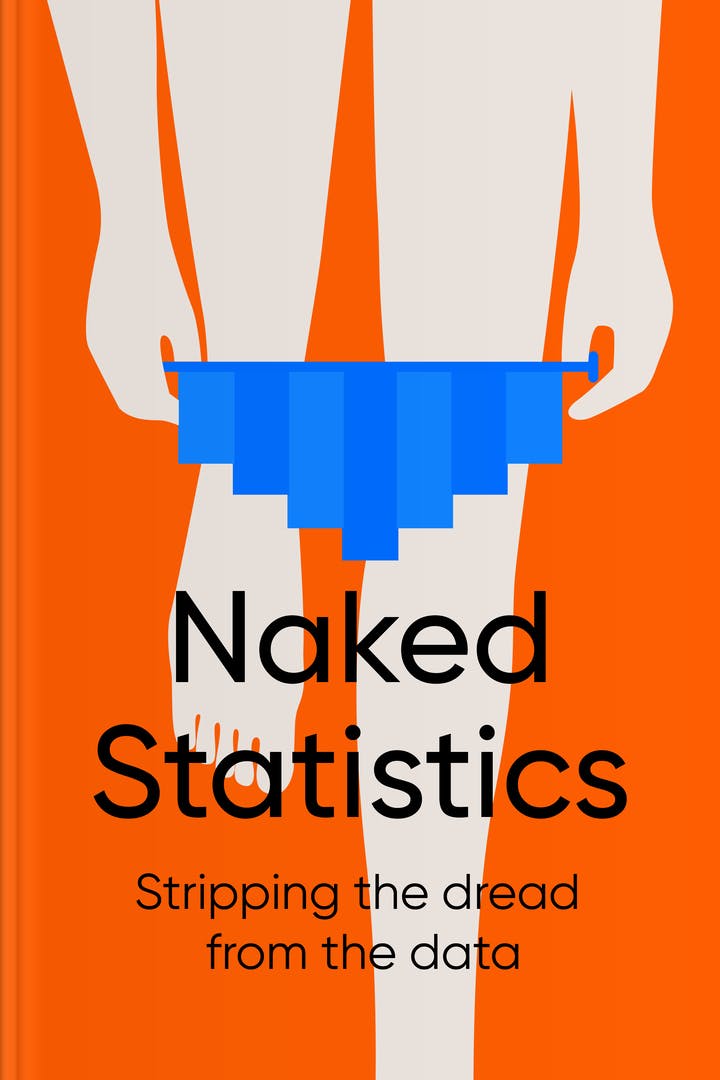 8
8Naked Statistics
by Charles Wheelan
What is Naked Statistics about?
In this engaging and accessible book, the author takes readers on a journey through the world of statistics, demystifying the subject and making it relatable to everyday life. With humor and real-world examples, Wheelan explores the power and pitfalls of data analysis, teaching readers how to interpret and critically evaluate statistics. Whether you're a math enthusiast or someone who fears numbers, this book will equip you with the tools to navigate the world of data with confidence.
Who should read Naked Statistics
Students and professionals seeking a comprehensive introduction to statistics.
Individuals looking to understand the practical applications of statistical concepts.
Anyone interested in demystifying data analysis and making informed decisions.
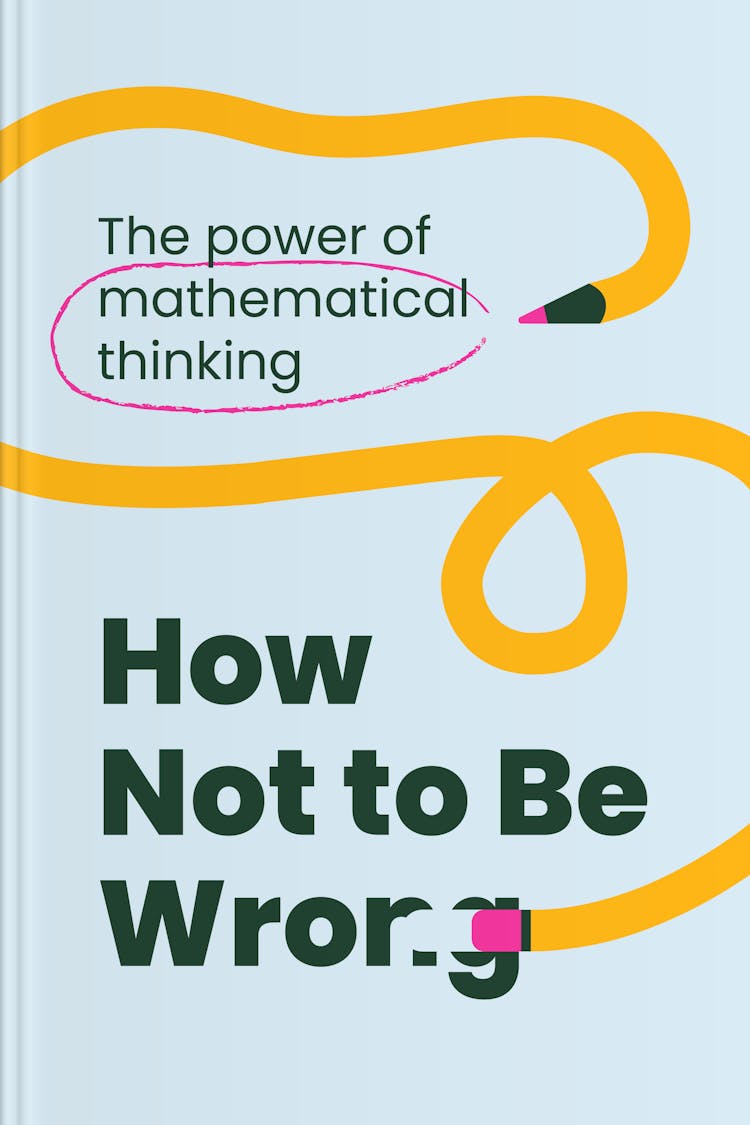 9
9How Not to Be Wrong
by Jordan Ellenberg
What is How Not to Be Wrong about?
In this captivating book, the author explores the fascinating world of mathematics and its practical applications in everyday life. Through engaging anecdotes and thought-provoking examples, he reveals how mathematical thinking can help us make better decisions, solve complex problems, and avoid common pitfalls. With wit and clarity, the author demonstrates the power of mathematical reasoning, showing readers how to think critically and navigate the world with a sharper, more logical perspective.
Who should read How Not to Be Wrong
Students and educators seeking to enhance their mathematical reasoning skills.
Professionals in fields like finance
engineering
or data analysis.
Anyone interested in understanding the practical applications of mathematics.
